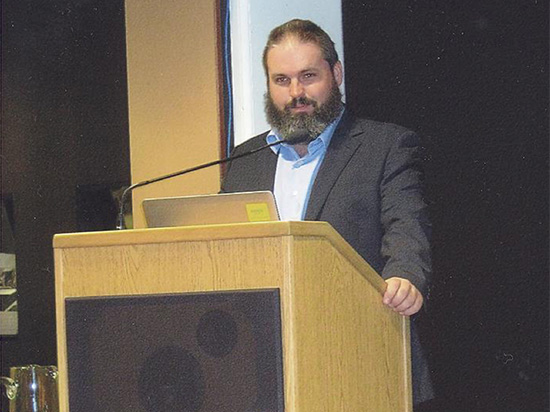 I first studied Old Norse Mythology under Professor Richard Harris at the University of Saskatchewan in the summer of 2002. His classes on Norse Mythology and Medieval Icelandic Literature were my favourite classes as an undergraduate, and I was able to capture my fascination with the topic in a term paper, “Loki: Potency of Chaos.” Later in graduate school I was able to study Old Norse Literature under Birna Bjarnadóttir and Icelandic Language under P.J. Buchan, at the University of Manitoba Department of Icelandic. My PhD in English Literature focused on Medievalism, examining how nineteenth- and twentieth-century writers, mainly in Iceland, the British Isles, and North America, rewrote medieval legends as a way of attempting to come to grips with the shocks and upheavals of modernity. Completing my PhD in 2016, I bicycled across Canada and came across a strange piece of graffiti near Moyie, British Columbia, which read simply LOKI, reminding me of this far-traveling and adaptable figure.
I first studied Old Norse Mythology under Professor Richard Harris at the University of Saskatchewan in the summer of 2002. His classes on Norse Mythology and Medieval Icelandic Literature were my favourite classes as an undergraduate, and I was able to capture my fascination with the topic in a term paper, “Loki: Potency of Chaos.” Later in graduate school I was able to study Old Norse Literature under Birna Bjarnadóttir and Icelandic Language under P.J. Buchan, at the University of Manitoba Department of Icelandic. My PhD in English Literature focused on Medievalism, examining how nineteenth- and twentieth-century writers, mainly in Iceland, the British Isles, and North America, rewrote medieval legends as a way of attempting to come to grips with the shocks and upheavals of modernity. Completing my PhD in 2016, I bicycled across Canada and came across a strange piece of graffiti near Moyie, British Columbia, which read simply LOKI, reminding me of this far-traveling and adaptable figure.
Since 2016 I have been teaching at the University of Manitoba, and it has been an honour to teach Old Norse Mythology and other classes for the Icelandic Department. I have also been preparing to write a book about Loki and his “international career” as one of the best-known figures of Norse Mythology during the last 50 years. In nineteenth-century poems, translations, and retellings, Loki was often vilified, partly as a result of the influence of nationalist ideals which in effect took his blood-brother Odin’s side in their feud, as Odin was seen as a founder of nations (moreover, Loki’s role as the slayer of the saintly god Baldr was interpreted as an almost devilish one). In the twentieth century, however, and especially since the 1970s (with Guðbergur Bergsson’s 1974 poem Flatey-Freyr as a milestone), many authors have been more sympathetic to Loki and have cast him in the role of creative patron, persecuted prophet, jaded anti-hero, defiant hero, or martyr for truth, a figure of worship and veneration; while the other gods of Asgard, and especially Odin, have more often been vilified for their empire-building and endless pursuit of war. Our religious, cultural, and indeed mythical, circumstances, now seem quite changed; but what does belief mean in an age of ongoing upheaval and rapid transformation? My title comes from Guðbergur Bergsson, who wrote: “Loki Is My God.”
Examining one of the most crucial, controversial, and inspiring figures from a body of literature which was written in Iceland and later communicated to the world, going on to inspire authors in numerous countries, will create a unique and poignant book that will appeal to anyone interested in Norse myth, Icelandic literature, Scandinavian cultural heritage and influence in the British Isles and North America, medievalism, folklore, and the living history of religion and culture. In times of ongoing catastrophe, the meaning of every stage of life may be interpreted by the fiery light of Ragnarok, an apocalyptic event in which Loki plays a definitive role. This dire catastrophe breaks the bonds of the trickster and of all beings, as history ends, foundations crumble, civilizations fall, and long-prophesied confrontations occur.
As a result of teaching (my article “Valhalla in Manitoba: An Icelandic Department Trip to New Iceland” will be published in the 2024 volume of Icelandic Connection shortly) and my own travels, I’ve also been visiting locations named after Norse mythical locations in western Canada (Gimli, Baldr, Ymir, Valhalla, etc.; this year I came across a “Loki Lane” is Kaslo, BC) and plan to draw on this experience, and to incorporate maps and illustrations into this book which will provide an overview of Loki’s story, mythical role, and reinterpretation in these strange times.
